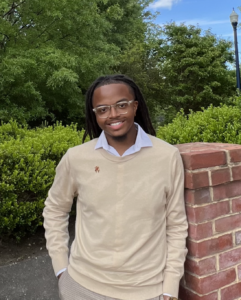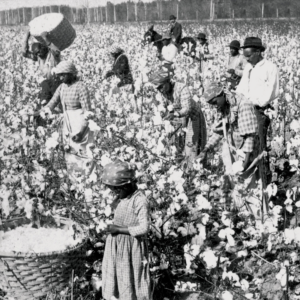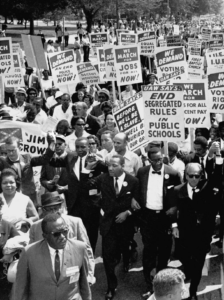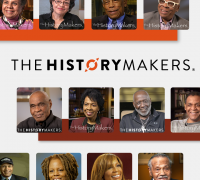McHale, S. M., Updegraff, K. A., & Whiteman, S. D. (2012). Sibling Relationships and Influences in Childhood and Adolescence. Journal of Marriage and Family, 74(5), 913–930. http://www.jstor.org/stable/41678766
This article introduces Susan McHale, a professor in the Department of Human Development and Family Studies at Pennsylvania State University, Kimberly Updegraff, a professor in the School of Social and Family Dynamics at Arizona State University, and Shawn Whiteman, a professor of Human Development and Family Studies at Purdue University. This study emphasizes the role of siblings as central to the life of the family as members who assist in adolescent development and adjustment and key areas of difference in siblinghood connected to sociocultural factors. While this article does not only talk about African-American families, it will be helpful during the analysis and conversational portion of our documentation process.
To read this article click here

 Yamir Chapman (He/Him) is a junior at the University of Richmond double majoring in leadership studies and psychology. A native of Trenton, New Jersey Yamir is active on his campus as the co-president of the co-ed acapella group known as Off The Cuff, the treasurer for The Black Student Alliance, and serves as a hearing board member for the Student Conduct Council. Additionally, Yamir has the privilege of serving as board member for the President’s student advisory board, a student representative for student development on the Board of Trustees, a member of the admissions committee. Yamir has done extensive work as a research fellow for the
Yamir Chapman (He/Him) is a junior at the University of Richmond double majoring in leadership studies and psychology. A native of Trenton, New Jersey Yamir is active on his campus as the co-president of the co-ed acapella group known as Off The Cuff, the treasurer for The Black Student Alliance, and serves as a hearing board member for the Student Conduct Council. Additionally, Yamir has the privilege of serving as board member for the President’s student advisory board, a student representative for student development on the Board of Trustees, a member of the admissions committee. Yamir has done extensive work as a research fellow for the 
 The study of Black siblinghood within the context of Black families is deeply rooted in a complex historical and sociological landscape. To understand the dynamics of Black sibling relationships among adolescents, it is imperative to consider the historical foundations of slavery, systemic racism, and the broader African-American experience. Historically, the institution of slavery in the United States had a profound impact on Black families. Enslaved individuals were often forcibly separated from their families, including siblings, leading to disrupted familial bonds. This traumatic history has left a lasting imprint on the collective memory of Black families and influenced the significance of sibling relationships as a source of support and resilience.
The study of Black siblinghood within the context of Black families is deeply rooted in a complex historical and sociological landscape. To understand the dynamics of Black sibling relationships among adolescents, it is imperative to consider the historical foundations of slavery, systemic racism, and the broader African-American experience. Historically, the institution of slavery in the United States had a profound impact on Black families. Enslaved individuals were often forcibly separated from their families, including siblings, leading to disrupted familial bonds. This traumatic history has left a lasting imprint on the collective memory of Black families and influenced the significance of sibling relationships as a source of support and resilience.
 Conducting interviews with African Americans to have a better understanding of their relationship with their siblings is extremely important because much of the literature surrounding development and siblinghood lacks the diverse and unique experience of African Americans with their siblings. Furthermore, African Americans experience siblinghood differently due to social strains such as poverty, culture, and even social institutions such as incarceration. Previous works such as
Conducting interviews with African Americans to have a better understanding of their relationship with their siblings is extremely important because much of the literature surrounding development and siblinghood lacks the diverse and unique experience of African Americans with their siblings. Furthermore, African Americans experience siblinghood differently due to social strains such as poverty, culture, and even social institutions such as incarceration. Previous works such as  We aimed to intentionally capture the experiences of younger subjects who either currently live with siblings or have lived with siblings within the past few years with hopes that it will help African-American siblinghood be captured in an accurate and complex way. Additionally, understanding African-American siblinghood will give us further insight into African-American family structures’ diverse dynamics and functionality. Overall, capturing and understanding African-American siblinghood will help us better understand how society disadvantages these siblings and how their relationships develop, operate, and thrive despite the unique adversities they face.
We aimed to intentionally capture the experiences of younger subjects who either currently live with siblings or have lived with siblings within the past few years with hopes that it will help African-American siblinghood be captured in an accurate and complex way. Additionally, understanding African-American siblinghood will give us further insight into African-American family structures’ diverse dynamics and functionality. Overall, capturing and understanding African-American siblinghood will help us better understand how society disadvantages these siblings and how their relationships develop, operate, and thrive despite the unique adversities they face.